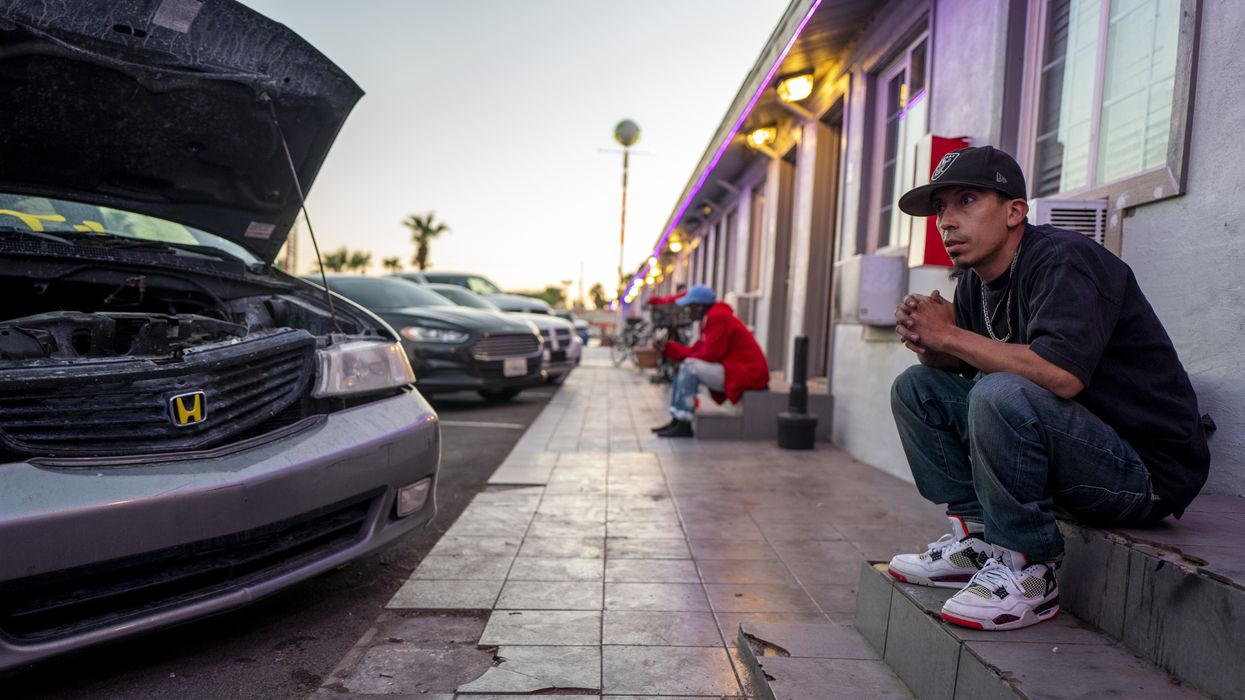Arzuaga is the housing policy analyst for the Latino Policy Forum.
The majority of Latinos in the United States experiencing homelessness are invisible. They aren’t living in shelters or on the streets but are instead “doubled up” — staying temporarily with friends or family due to economic hardship. This form of homelessness is the most common, yet it remains undercounted and, therefore, under-addressed, partly due to conflicting federal definitions of homelessness.
The Department of Housing and Urban Development defines homelessness narrowly, focusing on those living in shelters or places not meant for habitation, such as the streets. This definition, while useful for some purposes, excludes many families and children who are technically homeless because they live in uncertain and sometimes dangerous housing situations but are not living on the streets. This narrow definition means that many of these “doubled up” families don’t qualify for the resources and critical housing support that HUD provides, leaving them to fend for themselves in precarious living situations.
In contrast, the Department of Education, under the McKinney-Vento Homeless Assistance Act, adopts a broader definition that includes students who are doubled up, living in motels or in other unstable housing situations. This definition is more reflective of the reality faced by over 1.2 million public school students during the 2021-22 school year, with 76 percent of these students experiencing doubled-up homelessness.
The conflicting definitions create significant disparities in how homelessness is understood and addressed. While the Department of Education recognizes and provides some support for students in doubled-up situations, HUD’s narrower definition excludes these families, leaving them without the crucial housing assistance they need. This discrepancy even extends to how homelessness is counted. For instance, HUD’s Point-in-Time count focuses solely on those living in shelters or on the streets. In contrast, the McKinney-Vento count by the Department of Education includes all children without a fixed, regular and adequate nighttime residence, capturing those in doubled-up situations or motels. As a result, many homeless families are greatly undercounted and left out of policy decisions that determine federal housing funding.
Latino families are at high risk of facing housing instability and more likely to experience homelessness by doubling-up with other households due to economic challenges and systemic barriers. The situation becomes even more complicated for those who are undocumented. While both immigrant and migrant children and youth are eligible for McKinney-Vento services, such as free school meals, if they lack a fixed, regular and adequate nighttime residence, accessing broader housing support is more complicated. HUD’s stricter immigration requirements often bar undocumented families from receiving the housing assistance they need.
This gap in resources has real consequences for Latinos. Homeless children face a 18 percentage point drop in their chances of graduating high school compared to the national average. Even when schools provide support through the McKinney-Vento Act — such as tutoring, school supplies and transportation — students living doubled-up still lack what they need most: stable housing because HUD doesn’t recognize their living situation as homelessness.
While it won’t solve housing insecurity overnight, aligning HUD’s and the Department of Education’s definitions of homelessness would be a step in the right direction for truly addressing the needs of doubled-up families, ensuring that everyone is seen and counted. By expanding our understanding of what homelessness can look like, we can begin to connect these overlooked families and children to the housing resources and stability they desperately need.
If you think you may have experience living doubled-up, please consider taking this anonymous survey.



















Trump & Hegseth gave Mark Kelly a huge 2028 gift